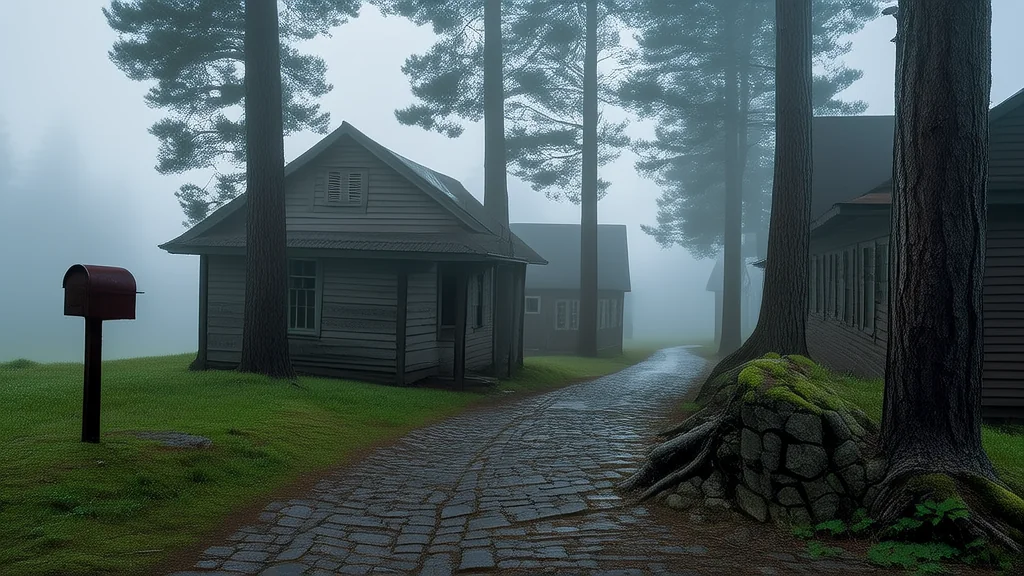🔮 Weird Tales & Urban Legends
The Silent Postman and the Vanishing of Elmsworth

The town of Elmsworth was quiet, too quiet. Nestled between two hills and surrounded by thick woods, it had always been a place where time seemed to move slower. Most people who lived there were content, but the elders spoke in hushed tones about the disappearances—people who vanished without a trace, leaving behind only their clothes and an empty space in the world.
It began with the postman. He was known for his punctuality, always arriving at the same time each day, humming old tunes as he walked the winding path through the village. One morning, he didn’t show up. His bike was found leaning against the tree where he usually parked, and his lunch bag sat untouched on the porch of the bakery. No one saw him leave, no one heard from him. The police searched the woods, but they found nothing.
Then came the schoolteacher. She was a kind woman, always smiling, always ready with a story or a song. One afternoon, she left her classroom with her satchel, promising to return in a few minutes. She never did. Her desk was still covered in notes, her chalk still in the holder. The children whispered about her, some saying she had been taken by the wind, others claiming she had stepped into the forest and never come back.
Soon, more people disappeared. A farmer, a shopkeeper, a child playing near the creek. Each time, there was no sign of struggle, no clues, just an absence that lingered like a shadow. The townspeople grew uneasy, but they kept their heads down, hoping it would all go away.
A new doctor arrived in town, a man with sharp eyes and a quiet demeanor. He claimed to be researching rare diseases, but the villagers suspected something else. He spent long hours in the library, poring over old records, asking questions about the disappearances. Some said he was trying to uncover the truth, others that he was hiding something himself.
One night, the doctor went missing. His room was locked from the inside, his belongings untouched. The door had no signs of forced entry, and no one heard anything. The townspeople gathered in the square, murmuring, their faces pale under the flickering streetlights.
As the days passed, the disappearances slowed, but the unease remained. People avoided the woods, even those who had once walked them without fear. Children were told not to wander too far, and the silence of the town grew heavier, like a weight pressing on the air.
One evening, a group of teenagers dared to venture into the forest, curious about the stories they had heard. They followed a narrow path, the trees towering above them, their branches whispering in the wind. The deeper they went, the more the light faded, until they were surrounded by darkness. They found an old cabin, half-buried in moss and vines, its door slightly ajar.
Inside, the air was thick with dust and the scent of decay. On the walls were drawings—simple sketches of people, their faces blurred, their bodies pointing in different directions. In the center of the room, a circle of stones formed a strange pattern, glowing faintly in the dim light. The teens felt a chill, not from the cold, but from something deeper, something watching.
They turned to leave, but the path behind them had changed. The trees had shifted, the trail gone, replaced by a wall of brambles. They called out, but their voices were swallowed by the silence. As they stood there, frozen, the ground beneath them trembled, and a low hum filled the air.
Back in town, the doctor’s house was empty, and the townspeople noticed that the clock in the square had stopped at 3:17. No one could explain it, but they knew something was wrong. The disappearances hadn’t ended—they had simply moved deeper into the unknown.
And so, the town of Elmsworth continued, its people living with the quiet fear that some things are meant to be forgotten, and others are waiting to be found.
发布于 en
🔗
相关站点
- AI Blog — AI 趋势与技术新闻